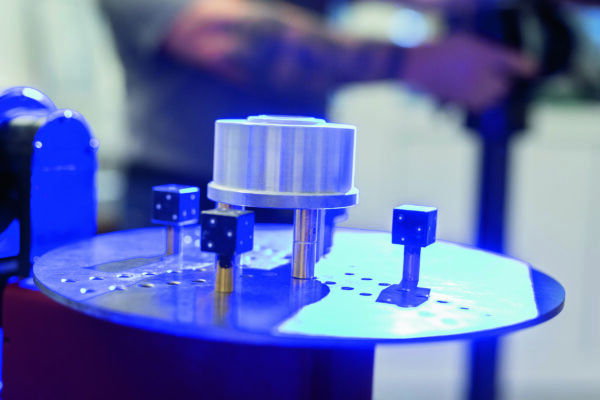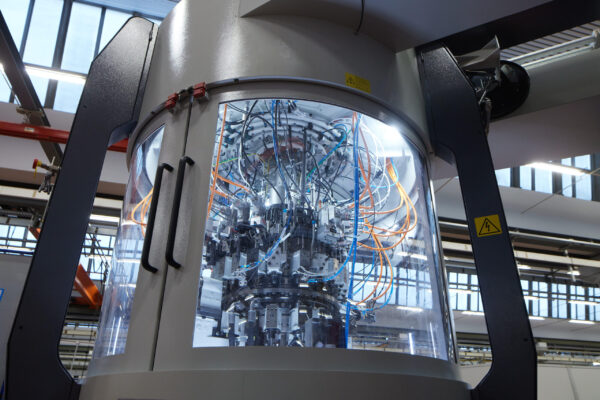Generally, automotive retail is not a structurally growing business, and it faces a number of structural challenges. These were amplified by the coronavirus in 2020. This points to a need for consolidation in the Dutch market and Stern is playing its part in this.
In the short term, consumer confidence has always been an important driver and dynamics have been very volatile this year against the backdrop of COVID-19. In the longer term, electric vehicles (EVs)/hybrid/shared cars represent a risk for traditional dealerships like Stern, as they either require fewer cars (shared) or less maintenance (EVs). Furthermore, there is always balance sheet risk, as dealerships are highly leveraged. Despite a strong balance sheet and liquidity compared to peers, Stern still had a large net debt position of €104m at the end of 2020 (FY19: €140m including Heron). Stern’s track record in profitability of the dealer and car service activities is relatively weak and lease companies are becoming a more important client group, and with the larger volumes involved they have a strong bargaining position. The ongoing restructuring should partly offset this effect.
Riding COVID-19 waves in 2020
Stern’s FY20 results were heavily affected by the progressing pandemic in several respects. Nevertheless, underlying profit was somewhat higher than expected with solid execution and COVID-19 related government support offsetting a lower than expected sales level due to the second wave of the pandemic. In addition to the direct COVID-19 effects on the business, there were also other large (non-cash) one-offs: an earlier communicated €20m impairment on car dealer related goodwill (to nil) and with the Q4 results an impairment of €6.7m on tax assets, as well as €2.1m in other one-offs. As a result, bottom line and reported results were lower than we expected.
The 2020 tax asset/goodwill impairments result in a solid, fully impaired balance sheet. Despite the write downs, the equity ratio (for covenants) came in at 39.7%, much higher than the covenant of 30%, to which it was close last year. Operational cash inflow was strong at €45.5m compared to just €8.7m in 2019, driven by lower claims on leasing companies related to the lockdown as of 15 December (which is very strong for lease cars due to tax reasons) and lower stocks.
With the progress that we have seen in underlying results and activities, a strong balance sheet and with the now fully impaired asset base leading to a book value of €22.19 per share, Stern seems to be well positioned for the uncertain market environment in 2021. However, the company does not provide specific guidance for 2021 given these circumstances.
Exhibit 1: Stern historical financial performance and FY20 results
€m |
2016 |
2017 |
2018 |
2019 |
2020 |
2020e Edison |
Revenue |
1,096.9 |
1,124.5 |
988.7 |
876.8 |
751.1 |
815.6 |
Cost of Sales |
(907.9) |
(934.2) |
(812.3) |
(719.8) |
(614.2) |
(684.2) |
Gross Profit |
189.0 |
190.3 |
176.4 |
157.0 |
136.9 |
131.3 |
EBITDA |
26.7 |
20.5 |
6.1 |
26.4 |
27.8 |
11.7 |
Normalised operating profit |
16.5 |
11.4 |
(1.7) |
5.1 |
6.3 |
5.1 |
Amortisation of acquired intangibles |
0.0 |
0.0 |
(0.1) |
(0.1) |
(0.1) |
0.0 |
Exceptionals |
2.2 |
1.3 |
0.2 |
0.0 |
(22.4) |
(18.3) |
Reported operating profit |
18.7 |
12.7 |
(1.5) |
2.1 |
(16.3) |
(13.2) |
Net Interest |
(3.4) |
(3.3) |
(4.1) |
(6.6) |
(5.5) |
(4.5) |
Profit Before Tax (norm) |
13.1 |
8.1 |
(5.8) |
(1.4) |
0.8 |
0.6 |
Profit Before Tax (reported) |
15.3 |
9.4 |
(5.6) |
(4.4) |
(21.7) |
(17.7) |
Reported tax |
(4.0) |
(1.9) |
1.7 |
3.1 |
(4.8) |
5.1 |
Profit After Tax (norm) |
9.1 |
6.2 |
(4.1) |
1.7 |
(4.0) |
5.7 |
Profit After Tax (reported) |
11.3 |
7.5 |
(4.0) |
(1.4) |
(26.6) |
(12.6) |
Discontinued operations |
0.0 |
0.0 |
4.5 |
22.6 |
(0.8) |
0.0 |
Net income (normalised) |
9.1 |
6.2 |
(4.1) |
1.7 |
(4.8) |
5.7 |
Net income (reported) |
11.3 |
7.5 |
0.5 |
21.2 |
(27.4) |
(12.6) |
|
|
|
|
|
|
|
Average number of shares outstanding (m) |
5.7 |
5.7 |
5.7 |
5.7 |
5.7 |
5.7 |
Source: Stern, Edison Investment Research estimates. Note: 2019 numbers adjusted for Heron sale.
2020 sales came in lower than our expectations at €751m, a decrease of 14% y-o-y adjusted for the sale of Heron early last year, compared to our estimate of €816m. This was driven by the pandemic related closure of dealer showrooms and stopped car deliveries to all clients, including lease companies as of 15 December.
New passenger car sales in the Netherlands decreased 20.2% to 356,051 in 2020, while Stern sold 24.7% less new cars (13,514), resulting in a market share decline of 4.0% to 3.8%. This was partly caused by the effect of Stern deciding not to deliver new cars in the last two weeks of December given new lockdown measures at that time and it postponed these deliveries to January, while several other dealerships did (this makes January a strong month for Stern). The increase in full electric car sales amounted to 7.3% at 1,085. Also, in light commercial vehicles Stern lost market share to 6.1% (was 7.5%), which was largely caused by a one-off large taxi deal in 2019. Used car sales volumes dropped 15.3%, much more than expected, partly explained by a lower number of dealer locations compared to 2019.
Gross margin surprised positively with 18.2%, compared to 16.1% expected, driven by mix effects because of relatively more workshop revenues.
Adjusted EBITA came in at €6.4m, compared to our estimate of €5.1m, mostly because of lower than expected staff expenses, also because of strong government support measures (NOW 1 and NOW 3), which will also support Stern in H121. Negative one-off effects were €2.1m related to some old court cases, consultancy fees regarding the negotiations with Hedin and a book loss on the sale of real estate.
Reported EBIT arrived at a loss of €16.3m, caused by an earlier reported €20m impairment on the goodwill in the dealerships, compared to our estimate of a loss of €13.2m, which did not include the reported one-off items (€2.1m). Furthermore, Stern took a loss of €6.7m against its tax assets. All in all, the reported net loss came in at €27.4m, but on a comparable basis adjusted for the €20m goodwill and tax asset impairments, a small positive result remained of €0.2m.
The pandemic has affected and still is affecting Stern in several ways. Showrooms have been closed for parts of 2021 as well, working from home continues to be encouraged leading to less traffic hence less accidents etcetera and Stern is making use of government support (NOW 3 and TVL) that runs up to H121. Nevertheless, expectations for new car sales look strong (up 10.9% on average according to sector organisations RAI and Bovag and ING).
Accelerating improvements in digital model
Mega trends in the mobility sector are forcing Stern to change its traditional dealer business model. These trends range from the transition from combustion engines to hybrid/electric (20% of new car sales in Netherlands in 2020 according to government organization RVO), consumer trends from buy (ownership) to lease (use), from showroom sales to online sales and shared car concepts.
While several of these trends tie in with the way clients use mobility and can be addressed by adding/changing services, the way clients access mobility solutions is also changing. That is why Stern’s focus is more and more on digital while making optimal use of its physical dealer network as the picture below shows.
Exhibit 2: Focus on Service & Brand Value strategy
|

|
|
|
A lot has changed in Stern’s digital operations last year. The improvement of the website has been impressive and Stern’s complete offering is now visible on the centralised platform, as well as through leading used car sales platforms in the Netherlands such as Autoscout and Autotrader. Traffic on Stern’s website has been up 20% since last July.
In the coming months several more initiatives will come to light:
■
A simple calculation module developed together with lease company ALD that results in a lease amount per month for a new or used car, or alternatively together with a finance proposal (together with Bovemij). This enables clients to see directly what the monthly payment will be. This obviously only goes for cars meeting certain criteria (age/miles/condition).
■
Buy online: clients can select a used car, order the car with all specifications, get a quote for a potential trade-in vehicle, order, make an appointment for delivery and payment on site, all online.
■
There will be an extensive advertising campaign to advertise the new options on the website.
■
A ‘golden record’ of clients. Where clients could be registered at several different Stern units (for instance previous Ford owners buying a Renault, with car repair in a different Stern unit), this redundancy should now be removed with golden client records that are available at all units. This makes more targeted campaigns possible.
■
Data collection on the Stern website (especially if users log in with a personal profile) makes more personalised advertising possible. There will be extensive use of Google Data analytics.
Stern’s efforts on digitalisation have been strong and we expect COVID-19 has accelerated this direction. We believe that Stern has regained lost territory compared to competition like Van Mossel, CarNext, ANWB and Broekhuis and might be one of the frontrunners now. It is too early to tell what the impact of these measures will be on Stern’s market share, but we would certainly expect a positive one.

















